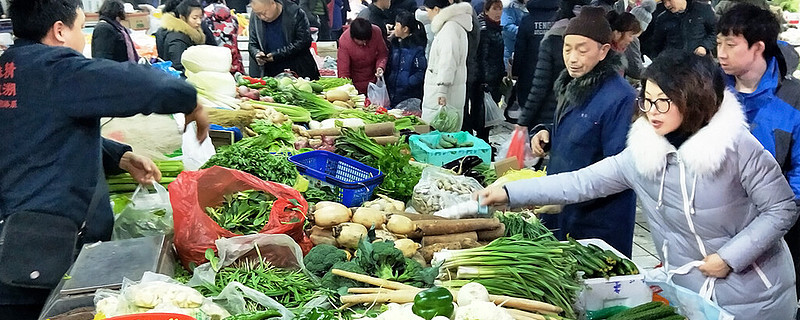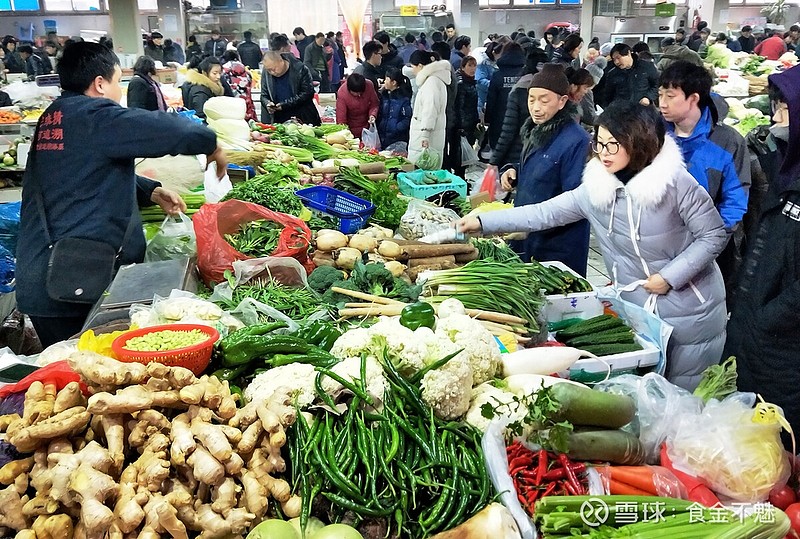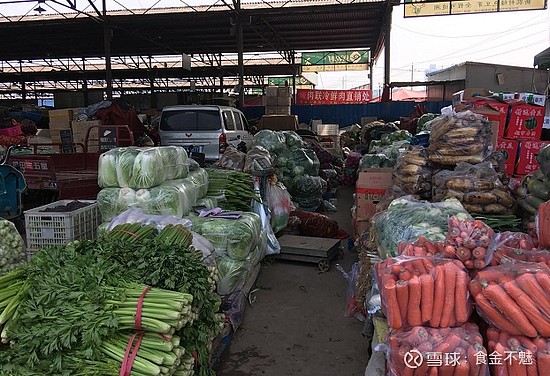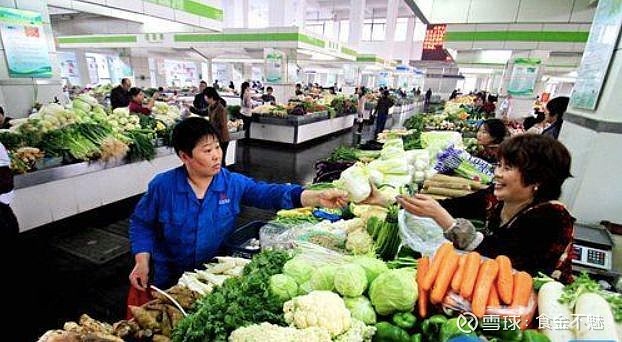
Many types of vegetables are selling at prices at the lowest levels of the recent five years, leading to a glee among consumers who have found that their are spending just a fraction of the usual cost for vegetables.
However, the glee may not last into 2024 as farmers may feel so discouraged as to reduce their vegetable farming areas significantly, resulting in sky-high prices, experts warned.

Data from Ministry of Agriculture shows that vegetables’wholesale prices have dropped 3.9 per cent year on year in November, to RMB 3.58 per kilo, which is 5.1 per cent lower than that in the preceding month. Spinach, cabbage, celery and white radish led the price drop from October, respectively by 26.6, 26.4, 18.5, and 12.4per cent.
The most commonly consumed vegetable, cabbage, is now at its cheapest level in the recent five years,”said Liu Tong, an analyst at the Xinfadi vegetable wholesale market in Beijing.
There are several reasons for the price drops. “To put it simply, the output of vegetables has increased,“said Li Guoxiang, an agricultural researcher with the Chinese Academy of Social Sciences. “The temperatures have been warmer than usual, which were conducive to vegetable growth. The recent few years of vegetable prices hovering at high levels has also prompted farmers to increase the acreage of vegetable growing.”

The over supply also results from the fact that cabbage, radish and carrot, typical winter vegetables, concentrated in going onto the market in November, and 15-20 per cent of their annual output appeared in the marketplace in November.
Further up the supply chain, farmers’prices, similar to industrial goods’ex-works prices, were understandably lower than usual. Cabbages, onions, wax gourds, pumpkins, carrots are selling at RMB 0.5-0.9 per kilo, a drop of more than 35 per cent than usual.
Chinese Vegetable Association said that farmers were selling off their cabbages at around RMB 0.1 per kilo in Yutian County in Hebei Province, a price barely covering the labour cost, forcing “some farmers to simply abandon their vegetable farms, leaving the cabbage to waste and rot.”

The Ministry of Agriculture has not stood idle and has tried to coordinate across the whole supply chain to stem the price decrease. However, noted Li Guoxiang, Chinese farmers are poorly organised and the majority of farmers operate in rather small scales, showing low sensitivity and giving belated or no response to signals and market information sent out by the government.
Li said that this year’s vegetable price decline may have sent out wrong signals that discourage farmers from growing vegetables next year, thus causing a shortage of supply next year. He believes that the government will need to work on organising farmers into associations, collectives and alliances so that they can plan their vegetable production in a more rational manner. He also believes that the processing of vegetables (such as frozen vegetables, dried vegetables, and related snacks) also need to be encouraged so that they may ease the over supply to some extent. ###